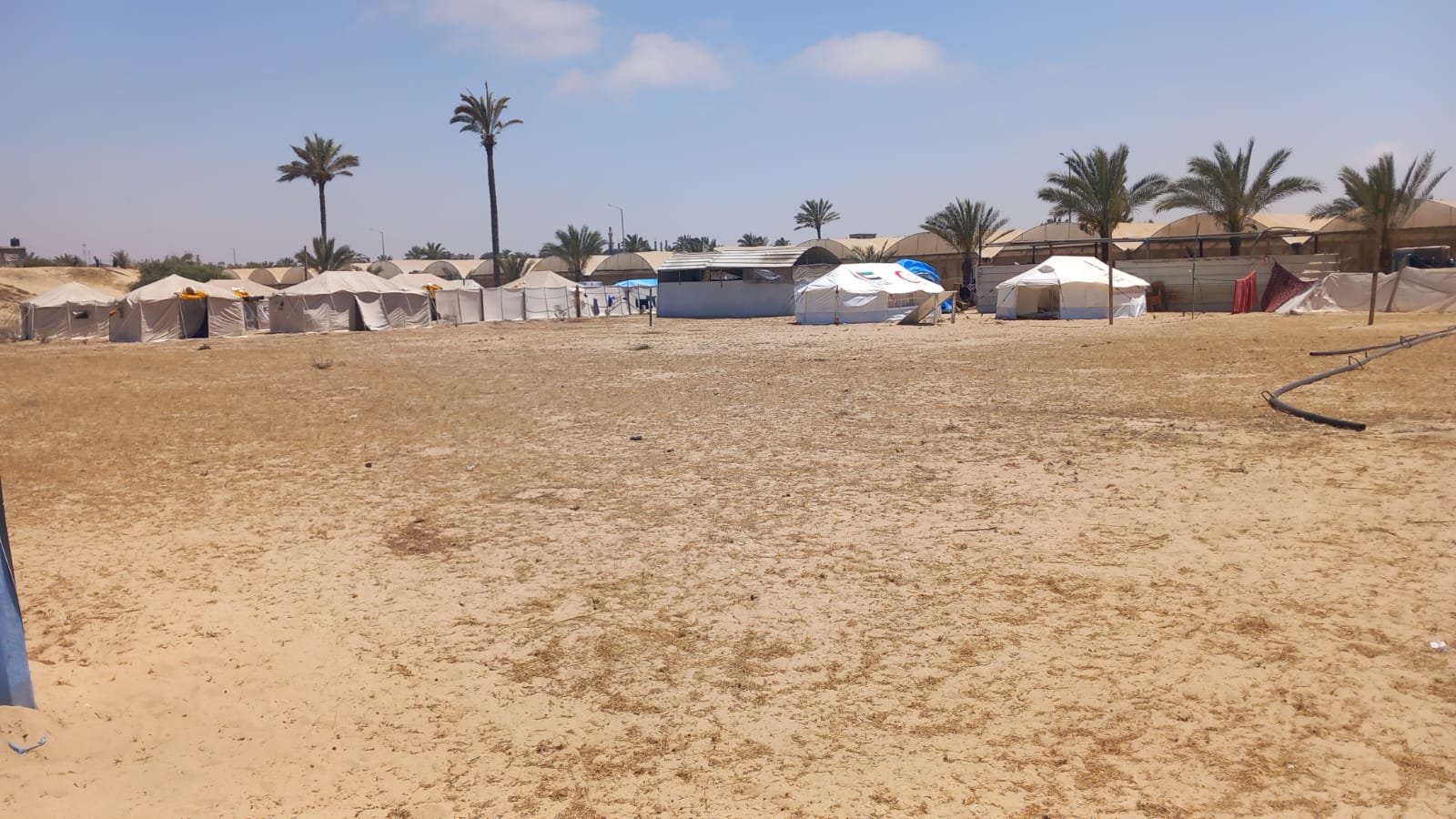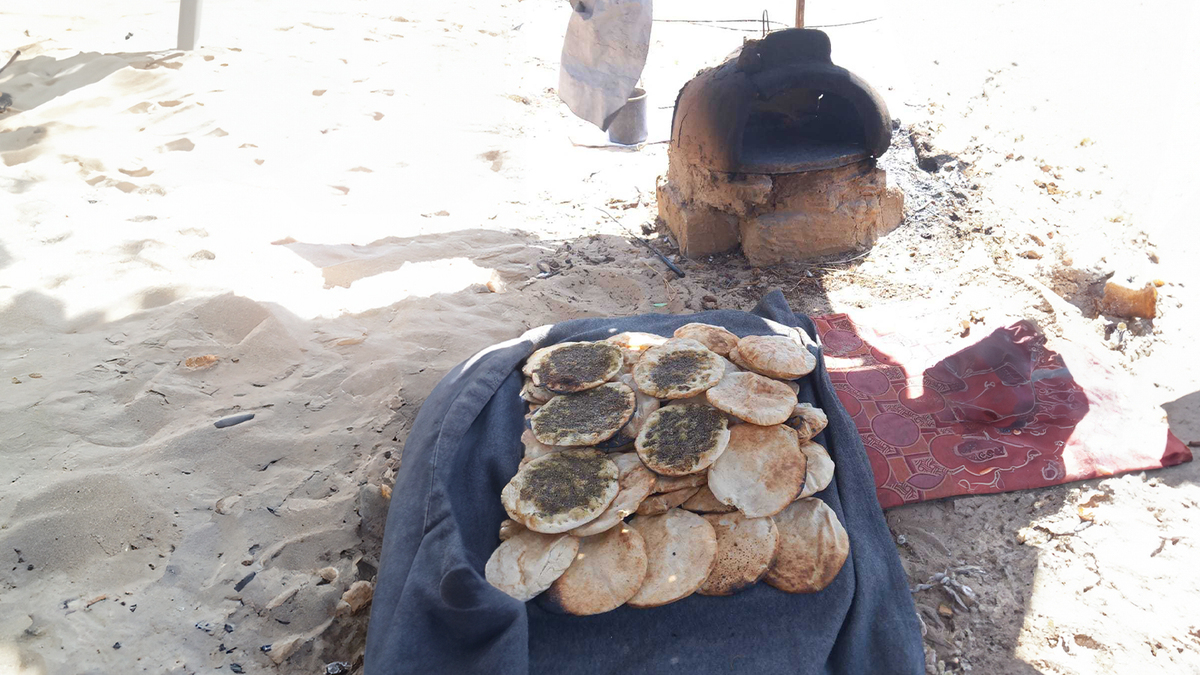Following the Israeli ground invasion of the city of Rafah, tragic events and daily struggles have turned the lives of Gaza’s residents upside down. With humanitarian aid drastically reduced and essential supplies becoming scarce, the people of Rafah and other parts of Gaza face immense challenges.
“Thousands of families now shelter in damaged and destroyed facilities in Khan Younis, where UNRWA continues to provide essential services despite the increasing challenges. Conditions are unspeakable,” the UN agency said in a post on X, formerly Twitter.
“Stench of death permeating every corner”
Fatima Ali, a Gazan citizen in her twenties, shared her harrowing experience following the Israeli invasion of Rafah.
“After the invasion, international organizations ceased their entry into the Gaza Strip. Humanitarian aid has dwindled by 70%. What was once a daily influx of 200 aid trucks carrying 15 to 20 tons each, including four fuel-loaded trucks, has significantly diminished since Israel gained control of the Rafah crossing,” she said.
At the Karm Abu Salem crossing, also under Israeli control, meticulous inspections are carried out on the aid supplies handed over to the United Nations, which then distributes them to other cities within Gaza. Rafah, once bustling with a dense population, has now become eerily silent due to continuous displacement.

“Daily life in Rafah is marked by the stench of death permeating every corner. Scenes of destruction unfold in alleys, streets, and lanes. Decomposed bodies lie amidst the rubble, and the mind struggles to comprehend the devastation,” Fatima continued. “People find themselves homeless, rebuilding tents as if caught in a perpetual cycle of withdrawal, return, reconstruction, and fresh destruction. This relentless cycle has taken its toll, especially after eight months of war. The cost of constructing expensive tents has become prohibitive, and unemployment and poverty have escalated.”
Scavenging for wood among the debris or stitching flour sacks together to build makeshift shelters have become commonplace. The price of wooden planks, once discarded on the streets, has skyrocketed to US$10 each. Families face the daunting task of constructing shelters, even though they yearn to return to their homes – homes that crumbled like fragile cookies under the impact of the destructive missiles and explosions. Despite the hardships, their determination to return still remains their dream, defying all adversity.
The absence of proper sanitation facilities is one of the most challenging aspects, according to Fatima. Women, deprived of absolute privacy, resort to using pieces of cloth to maintain their dignity. Basic hygiene and daily necessities are met with difficulty and the scarcity of water compounds the struggle.
“Elderly mothers like mine in Khan Yunis now rent donkeys to fetch water daily, as roads and transportation remain nonexistent. These water sources, barely suitable for drinking and cooking, cause ongoing health issues – daily diarrhea, cramps, weakness, and intestinal parasites,” she explained.
“The war has thrust us centuries back in time. Electricity and gas are scarce commodities. Palestinians have resorted to building mud ovens to bake bread. Water, a daily ordeal, is a lifeline for survival,” Fatima added.
Echoing those deep concerns, the UN World Food Program said that there is now “little we can do for the people still in Rafah” where roads are “unsafe, access is limited, and most of our partners and other humanitarian agencies have been displaced.”
A cartoonist’s struggle and hope
“I am Hisham Al-Shamali, a cartoonist from Gaza. I used to live a modest dream – to be the voice of the people and reflect the pulse of the street through my humble drawings. Thankfully, my work left a mark, and my cartoons have been featured in Arab and international media. I’ve also won several Arab and international exhibitions and competitions. However, this simple dream was shattered due to the war. I lost my job, part of my family, and my home during the conflict,” Hisham shared.
“My wife, our three young children, and I were displaced from one place to another. We slept on the streets, in schoolyards, and in hospital courtyards, escaping death like everyone else. We ate whatever was available, even grinding animal feed for ourselves and the kids,” Al-Shamali told DevelopmentAid.
He continued: “Unfortunately, I have depleted my savings due to the exorbitant prices. A bag of flour, which normally costs 30 shekels, skyrocketed to $350, or its equivalent of 1500 shekels. It was a difficult period and forgive me for not being able to share all the details – it’s truly heartbreaking. You know what it means for a man to be unable to provide for his children’s basic needs. Thankfully, we are currently displaced with my wife’s family, living as they do.”
Red Cross calls for steady, secure aid supplies
Hisham Mahna, a spokesperson for the International Committee of the Red Cross in Gaza, said,
“We witnessed an increase in the pace of humanitarian aid entering Gaza before the military operation in Rafah on May 6th. Unfortunately, this process negatively impacted the quantity of humanitarian aid entering Gaza, reaching an unprecedented low. This was particularly exacerbated after the closure of the Rafah border crossing with Egypt – the main gateway through which aid trucks of various types used to enter, along with humanitarian teams working in field hospitals and specialized infrastructure areas. Additionally, this closure prevented many patients and wounded individuals who were attempting to leave Gaza for medical care outside the territory, as such care was unavailable. Consequently, their health conditions deteriorated further.”
Mahna continued:
“Furthermore, the suspension of the maritime corridor established by the United States, which was meant to replace the more efficient and effective land transportation method for humanitarian aid, has exacerbated the situation. Currently, there is a shortage of humanitarian necessities across various parts of Gaza, especially in the northern region. Reports indicate significant challenges in accessing sufficient food supplies, raising concerns about a return to the dire conditions witnessed in previous months.
Our urgent call now is for the opening of feasible crossings with Gaza, allowing the maximum possible amount of aid to flow into the territory.” He added, “We need to transform the trickle of humanitarian support into a steady and secure stream, ensuring that humanitarian teams can move freely and safely throughout Gaza – both in the north and the south. It is incumbent upon Israel to guarantee civilians’ access to essential needs such as water, food, and medical care, above and beyond security considerations.”


